ROSA Online Assistance: "The Water Convention - A Tool to Improve the Management of Transboundary Waters" in the Plurinational State of Bolivia (Session 6)
Work area(s)
Topic(s)
On December 6, 2024, the sixth and final online training session for the Plurinational State of Bolivia took place under the framework of the ROSA Project (Network and Observatory for Water Sustainability). The session was titled "The Water Convention - A Tool to Improve the Management of Transboundary Waters." The event aimed to address key questions such as: What is its objective? How does it work? And what are the benefits for a country to adhere to it?
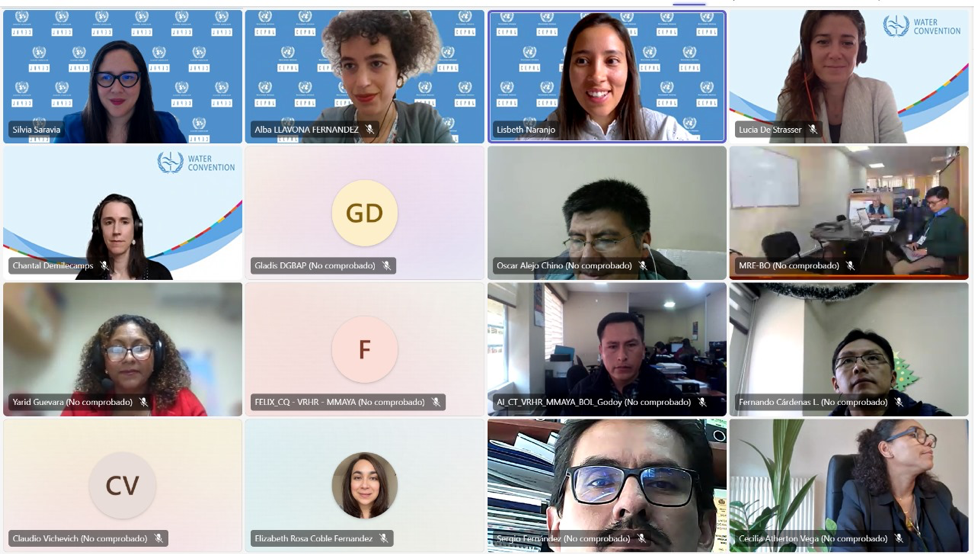
Dr. Silvia Saravia Matus, Economic Affairs Officer at ECLAC, opened the event by contextualizing the ROSA Project. She provided a brief recap of the content covered in the previous training sessions, introducing the session’s agenda. She concluded her remarks by presenting the guest speakers: Ms. Chantal Demilecamps and Ms. Lucia de Strasser, from the United Nations Water Convention Secretariat (UNECE/UN); Ms. Yarid Guevara, from the Ministry of Environment of Panama; Ms. Cecilia Atherton Revillard, from Panama's Permanent Mission to the United Nations; and Mr. David Rada, from the Ministry of Foreign Affairs of the Plurinational State of Bolivia.
Ms. Chantal Demilecamps began the session by discussing the principles and content of the 1992 UNECE Convention on the Protection and Use of Transboundary Watercourses and International Lakes (Water Convention) and the 1997 UN Convention on the Law of the Non-Navigational Uses of International Watercourses. She also highlighted several aspects of international law regarding transboundary waters.
Ms. Lucia de Strasser followed with a presentation on the history and current status of the Water Convention at the global level and in Latin America and the Caribbean (LAC). She outlined the advantages and obligations for member countries, explained how the Water Convention operates (its work program and tools), and discussed the Convention's working groups and the various topics they address. She also highlighted the Convention's impact and achievements over the past 30 years.
Ms. Yarid Guevara and Ms. Cecilia Atherton Revillard shared Panama's experience as the first country in the Latin America and Caribbean region to adhere to the Water Convention. They specifically discussed the different stages of the accession process and the benefits of its implementation in strengthening international cooperation efforts on shared waters.
Representing the Plurinational State of Bolivia, Mr. David Rada emphasized the importance of the topic in the national context, noting that Bolivia shares a significant portion of its water bodies with neighboring countries. He also presented the country's progress in establishing cooperation mechanisms.
Please find the recording of the evente here.
Related content
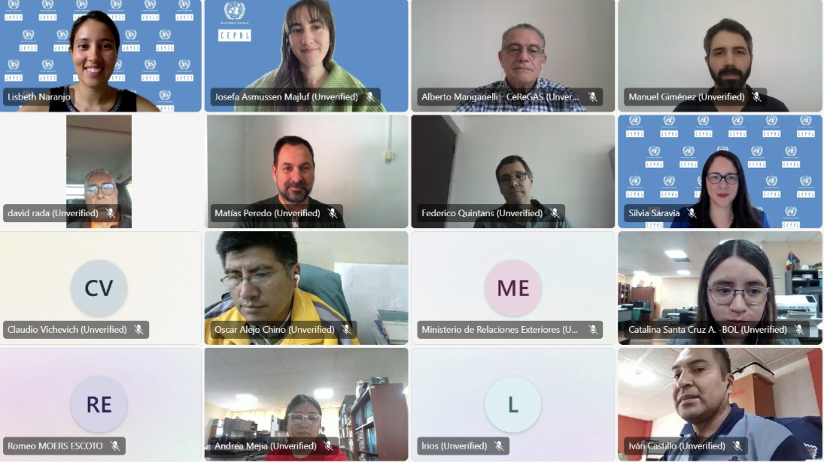
ROSA Online Training: “Hydrological Monitoring Networks and Ecological Water Flow” in the Plurinational State of Bolivia (Session 5)
On November 29, 2024, the Fifth Online Training Session was held as part of the ROSA Project (Network and Observatory for Water Sustainability), titled “Hydrological Monitoring Networks and…

ROSA: Online Assistance: Water, Energy, Food, and Environment Nexus in the Plurinational State of Bolivia (Session 4)
On October 4, 2024, the Fourth Online Training session was held as part of the ROSA project (Network and Observatory for Water Sustainability), titled “Water, Energy, Food, and Environment Nexus,”…
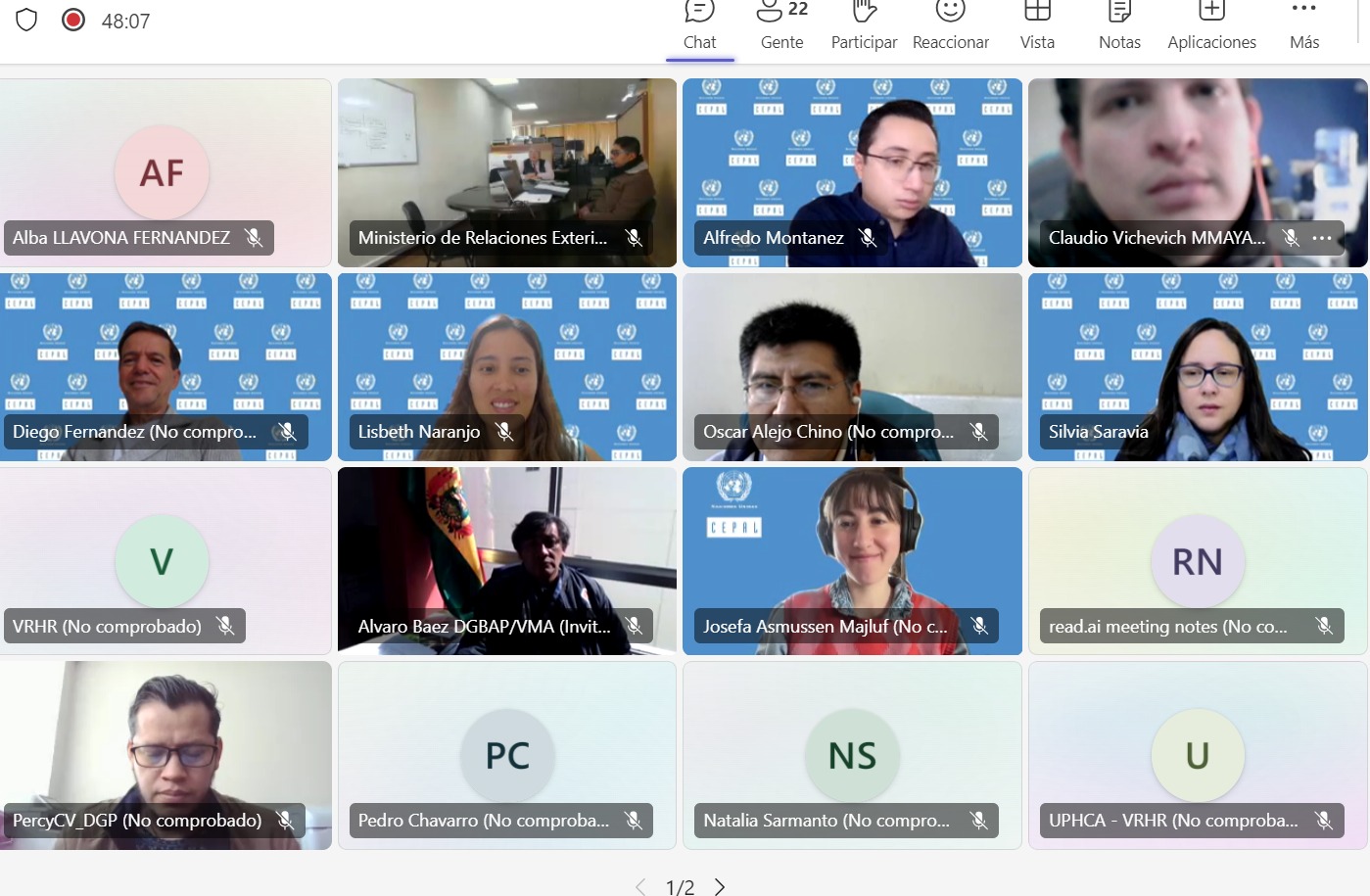
Third Virtual Training Session under the ROSA Project for the Plurinational State of Bolivia: “Application of Circular Economy Principles in the Drinking Water and Sanitation Sector”
On Friday, September 6, 2024, the third online training session on the “Application of Circular Economy Principles in the Drinking Water and Sanitation Sector” was held, directed at the Plurinational…
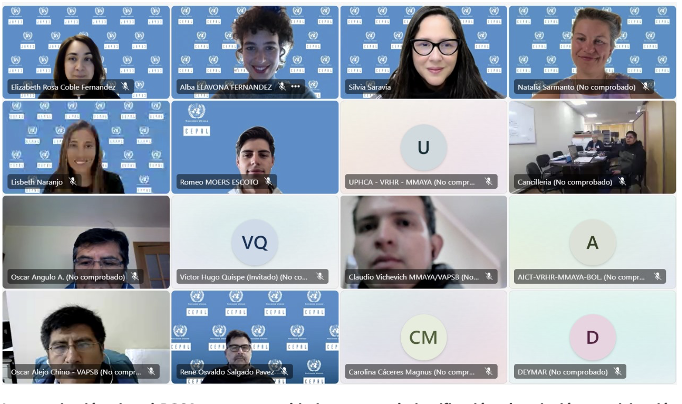
ECLAC organizes the second virtual training session as part of the ROSA project's technical assistance to the Plurinational State of Bolivia: "International Processes Around Water Resources."
The virtual ROSA training aimed to review the justification, description, participation, and outcomes of the various international processes related to water management, including aspects relevant to…
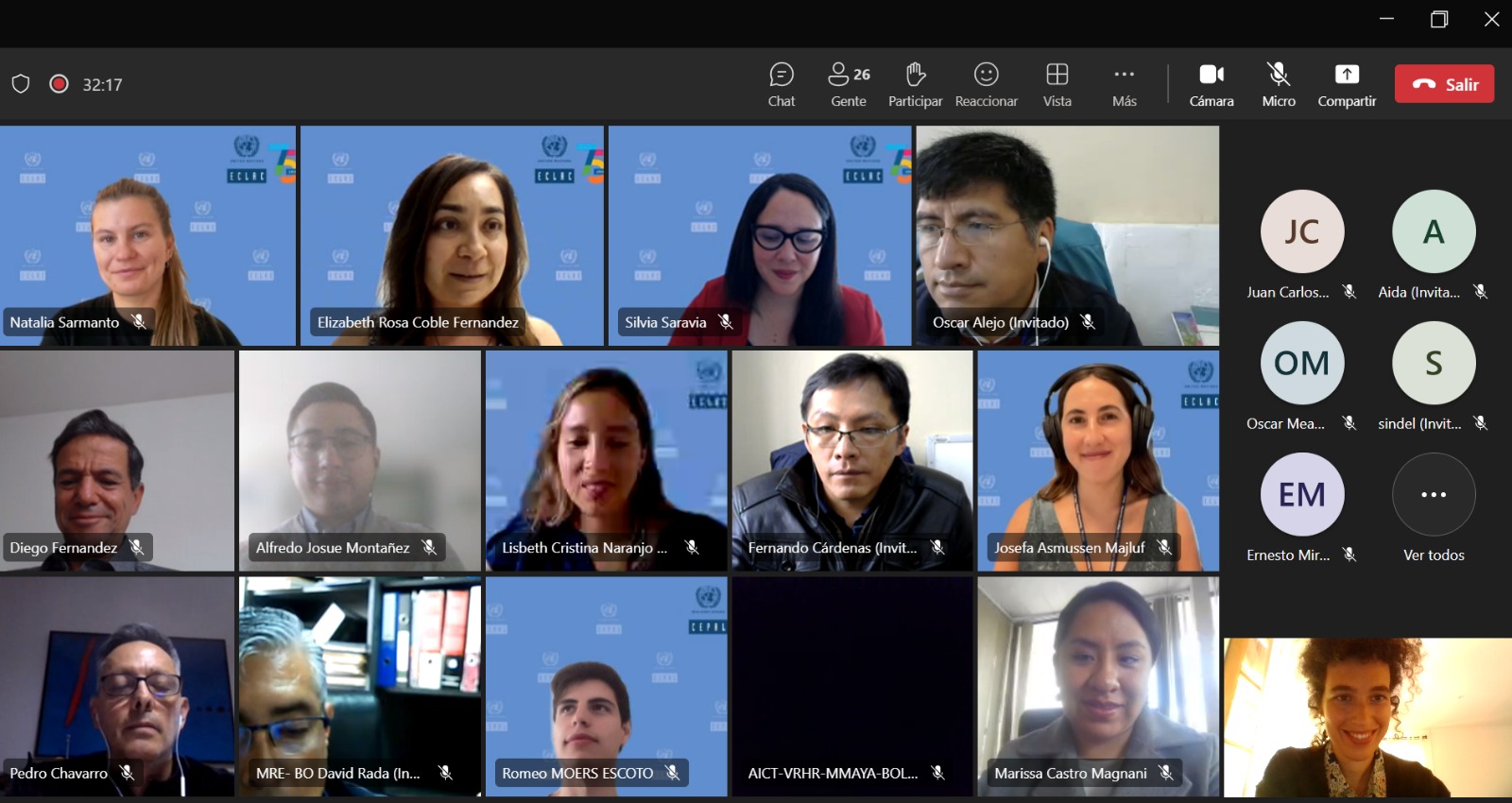
First Online Technical Assistance under the ROSA Project – Plurinational State of Bolivia
As part of the Water Sustainability Network and Observatory (ROSA) project, the first online technical assistance for the Plurinational State of Bolivia was held on February 15, 2024. This inaugural…